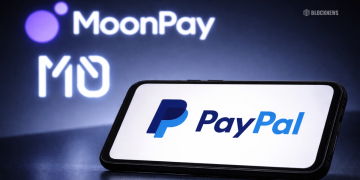• Blockchain technology in healthcare enhances interoperability between different healthcare systems
• It provides a decentralized and secure way to store and share medical data
• Blockchain has the potential to revolutionize various aspects of the healthcare industry, such as supply chain management and clinical trial data management
Blockchain in healthcare may not be a new concept to some of you, but the tech moves fast. In this article, we’ll break down where it was, where it is, and where it may be headed in the near future.
Its decentralized and secure nature is increasingly being recognized as a solution to some of the sector’s most persistent challenges, such as data privacy, interoperability, and security. Challenges that have historically plagued the healthcare industry.
Overcoming Interoperabilty
One of the primary ways blockchain is making waves in healthcare is through the management of Electronic Health Records (EHR), a digital version of a patient’s medical history. Traditionally, healthcare systems have struggled with interoperability as different providers often use incompatible platforms that make data sharing inefficient and unsafe.
However, blockchain technology allows healthcare institutions to securely share patient data across platforms. For instance, MedRec, a blockchain-powered framework, allows different medical systems to securely exchange patient information without directly storing medical records on the blockchain. It utilizes smart contracts to regulate who has access to the data.
The Importance of Protecting Your Data
Data privacy remains a critical issue in healthcare, with numerous high-profile breaches compromising millions of patient records. However, blockchain offers a solution by using cryptographic encryption to protect sensitive data. Technologies like the blockchain-based Ancile framework employ advanced encryption methods to enhance data security. This approach gives patients greater control over who can access their personal health information, minimizing the risk of unauthorized access and breaches while maintaining the benefits of data sharing between authorized providers.
Looking forward, blockchain has the potential to expand its application in healthcare, especially in areas such as remote patient monitoring, drug tracking, and clinical trials. Blockchain can support decentralized patient monitoring systems by securely storing health data from devices, making sure that remote monitoring can be done without risking the patient’s privacy. The ‘Healthcare Blockchain System’ framework for example is already demonstrating how private blockchains can track health data in real time, ensuring accountability and transparency in patient monitoring.
Anotdrug tracking. The pharmaceutical industry has long battled counterfeit drugs in the sher promising application is upply chain. By providing an immutable ledger of a drug’s journey from manufacturer to patient, blockchain can ensure the authenticity of medications.
Despite its promise, blockchain’s integration into healthcare is not without obstacles. Concerns around computational inefficiency, the environmental impact of blockchain mining, and disparities in access to blockchain solutions due to technological or financial limitations remain. Additionally, regulatory frameworks are needed to govern the ethical use of blockchain in managing patient data, alongside ongoing research to refine the technology for healthcare use.
Conclusion
In conclusion, blockchain is already making a significant impact in healthcare, particularly in improving the security, privacy, and interoperability of patient data. As the technology evolves, its applications will likely continue to expand, but there is still work to be done to ensure it can be fully integrated into healthcare systems globally.














